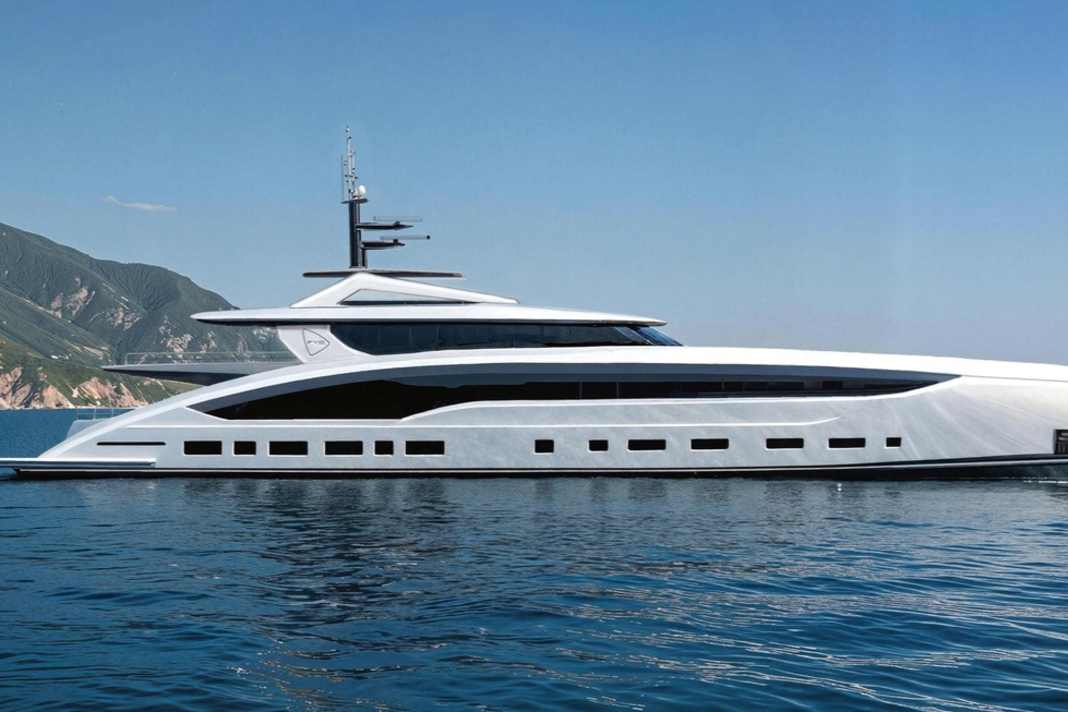





Some designs disappear not because they lack class, but because the market demands something different. This was the case with a 50-metre concept from Bremen-based think tank Focus Yacht Design. Originally drawn for a US customer, the plans were shelved when the customer's priorities changed.
Old concept, freshly relaunched
As founder Thomas Mühe rediscovered the drawings, the reaction was twofold: "Pure joy at the timelessness of the form. And the question of how we can bring it into the year 2025, with all the new requirements for efficiency, range and responsibility."
The answer: Focus Yacht Design developed two independent models from a single source: Unity and Gravity, with identical DNA and yet contrasting characters. The result covers the entire spectrum of modern yachting - from sporty emotion to relaxed long-distance cruising.
For Focus Design, Unity is the extrovert
The wider semi-displacement hull and nine metre overall width make the Unity concept a performance cruiser. A split-level wheelhouse lowers the overall height, maintains the sporty, flat silhouette and opens up a flybridge with an open-air helm station. On deck, guests can enjoy a sports lounge, a bow jacuzzi and generous sunbathing areas.
The owner's suite is located on the main deck, with two VIP cabins plus up to three guest cabins below deck. Unitiy from Focus Yacht Design is aimed at owners who love acceleration and driving pleasure and accept moderately higher fuel consumption in return - a far cry from the thirst for fuel of classic gliders.
Gravity is the elegant version
Gravity consistently follows the fast displacement philosophy. The slim underwater hull glides almost wave-free even at moderate speeds. Continuous, stepless decks create a flow that is otherwise reserved for 60-metre yachts.
Thanks to low fuel consumption (over 50 per cent more economical than traditional planners), Focus Yacht Design is aiming for a range of more than 3,000 nautical miles. Silence reigns when cruising, with a maximum of 45 dB(A) to be recorded in the master suite. For owners who value acoustic silence, long distances and a timeless shape more than top speed.
From diesel to clean drive
Fuel cells, diesel-electric hybrids and e-fuels have long been practical. Owners have the choice; both hulls are prepared for modular engine rooms, from classic diesel to low-emission hybrid packages. According to Focus Yacht Design, the silhouette remains iconic, regardless of which energy system is used on board in 2030.
Technical data
- Hull form: Semi-displacement (Unity)/ Fast Displacement Hull Form (Gravity)
- Length: 52 m
- Draught: 2.1 m (Unity)/2.3 m (Gravity)
- BRZ: 500 GT
- Top speed: 23 kn (Unity)/16 kn (Gravity)
- Voyage: 12 kn
- Consumption: 200 l/h (Unity), 100 l/h (Gravity)
- Range: 3,000 nm
